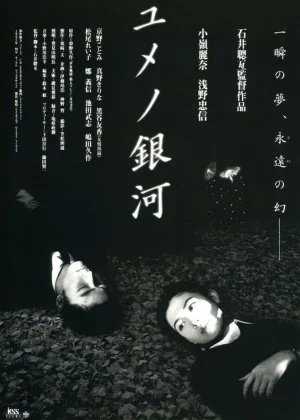Labyrinth of Dreams
Movie details

As an avid fan of Asian cinema, keeping up to date with the latest and greatest can be somewhat of a chore. But once in a while, you get lucky. Before I was even fully aware of what I was about to watch (this is more than 10 years ago mind), Arte (a French/German artsy TV station) aired Sogo Ishii's Labyrinth of Dreams [Yume no Ginga]. I struggled with the French subtitles but was so smitten by the film's atmosphere that I didn't even care. It's been one of my favorites ever since.
![screen capture of Labyrinth of Dreams [Yume no Ginga]](/thumbs/img/articles/1200xauto/labyrinth-dreams-1.webp)
It would take years before I even realized I'd seen one of Sogo Ishii's most obscure collaborations with Tadanobu Asano (Dead End Run, Electric Dragon 80000V). The film is still pretty much impossible to find (unless you don't need subtitles) and it's unlikely you'll see it mentioned by anyone apart from the most hardened Ishii fans. It's one of those films that, should the opportunity present itself, you simply cannot miss out on.
While Ishii is known as one of the frontmen of Japanese punk cinema (a niche with very limited appeal), there's more to the man than just his punk-inspired films. Even his biggest fans forget sometimes, but movies like Kyoshin and August in the Water are clear indications of Ishii's broader directorial skills. His recent name change to Gakuryu Ishii (with Isn't Anyone Alive as an accompanying film) is another solid indication. Labyrinth of Dreams belongs in that list of deviant films, which in part explains its obscurity.
Labyrinth of Dreams is based on a novel by Yumeno Kyusaku and marks one of the few times Ishii worked with pre-existing material. While Ishii has no trouble making the film his own, the plot is actually rather pulpy. Everything revolves around a mysterious bus driver (Niitaka) who joins the bus crew in a rural Japanese town. Niitaka's appearance is linked to an urban legend that tells of a young charmer who seduces his co-workers and ends up killing them before moving on to the next town. Tomiko is stuck in the middle when she gets paired with Niitaka and falls madly in love with him.
![screen capture of Labyrinth of Dreams [Yume no Ginga]](/thumbs/img/articles/1200xauto/labyrinth-dreams-2.webp)
Sogo Ishii is a visual artisan, and Labyrinth of Dreams is solid proof of his artistry. Even though I prefer high-contrast black and white, the hazy, muted look Ishii applied is perfect for this film. With a strong focus on lighting and excellent framing, he dishes out amazing imagery, only improved by some excellent fetish-like close-ups (clear remnants of his punk aesthetic). Add to that Ishii's perfect sense of timing and razor-sharp editing skills and this film is every bit as stunning as you'd expect an Ishii film to be.
No matter how impressive the visuals are though, it's the sound design that truly stands out. It's not uncommon for Ishii's films to have an outspoken soundtrack, but Labyrinth of Dreams is slightly different. None of the loud and in-your-face punk-style music here, instead, Ishii opts for amazing ambient drones and lots of sound filtering to heighten the impact of isolated sounds. The effect is mysterious and laden, a treasure trove of atmosphere that would remain intact even if you aired it on the radio.
Rena Komine and a young Tadanobu Asano take up the lead roles. They do a splendid job, though people not taken (or familiar) with the rigid Japanese way of acting might be a bit harder to convince. While their seemingly impenetrable facade adds an extra dimension to the mystery, they might come off as icy and emotionless. A common complaint but unfounded if you ask me. I found both characters to be enigmatic and rich. The secondary cast doesn't reach the same heights, but they suffice.
![screen capture of Labyrinth of Dreams [Yume no Ginga]](/thumbs/img/articles/1200xauto/labyrinth-dreams-3.webp)
If you only consider the plot then Labyrinth of Dreams is on the plain side. There's only one real strand of mystery which is played out throughout the entire film, with enough obfuscation for the coin to fall either way. If you're only interested in how it all plays out, this film is probably not for you. On the other hand, if you love to see a mystery build up through superb sound design and lush visuals towards a gratifying ending then Ishii's Labyrinth of Dreams is a must.
Those who absolutely want to see the film will be required to be a little adventurous, but fans of Ishii and/or Asano would do good to go through the trouble. Even though it's not a typical Ishii film, there are enough stylistic remnants to please the fans while at the same time making sure it's not just a rehash of his earlier films. There isn't all that much to compare it to, which is probably why it has lost so little of its appeal through the years.